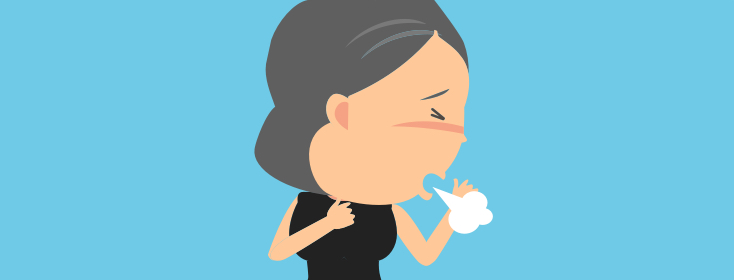Five Tips after a COPD Diagnosis
A COPD Diagnosis: Now What?
Cough. Cough. “I don't know why I'm so tired and I can't breathe. Maybe it'll blow over” might be the way it started.
“Go to the doctor,” you say to yourself later when you're not better. Or a loved one says to you out of concern.
So you see your doctor. Again. And then again. Then she orders some tests done to see what's going on with your lungs.
Later when the results come back she tells you the news: You have COPD.
Maybe you're surprised. Maybe you're scared. Maybe she just confirmed what you already thought. But most of us wondered at that point, “Now what do I do?” I was certainly at that point and these are five things I did to understand the disease. They also helped me cope.
Research
It's a cliché, but it's true that knowledge is power.
Research everything you can about COPD and what form of it you have. Research all the tests and the symptoms and the treatments. Research your health care and find out what is covered and what isn't and what kind of copays you might have for tests and specialists. If you don't have health coverage, research what kind of charity programs or financing are available; most hospitals and some pharmaceutical companies offer assistance. If you know what's going on and what's going to happen, COPD will not be so scary and mysterious. Also, you can be an advocate for your care.
Keep Calm and Carry an Inhaler
“Am I going to die?” was my first thought when I was diagnosed. After I knew more (research!) I realized that although being immortal sounded kind of cool, I would, eventually, die. But it could very well be decades and decades later. That's reassuring.
What will keep me going the longest is sticking to my medical plan. That is, the one my doctor and pulmonologist come up with along with what I include for myself. Taking my prescriptions as directed is one way. Resting before I do too much is another.
Keep Going
Resting is important. Sometimes on hard days you might be tempted to give in and not do anything ever. COPD feeds into my lazy streak: I love not having to clean out the litter box or wash the dishes. I adore sleeping in. I'm thinking of buying a fainting couch and laying in it all day. Then I can look dramatic and spout, “Woe is me,” like a proper Victorian invalid whenever someone comes into my room.
But I don't. Not just because fainting couches are expensive, but because you need to keep doing what you can do with COPD. Keep walking as you can, keep working as you can, keep going. Keep going or you'll lose the ability. Finding the balance between too much and not enough can be difficult but it's very important.
Find Support
This might not occur to you after your diagnosis. It didn't to me and I felt alone, that nobody—meaning my healthy friends and family—understood what I was going through even if they were sympathetic to me. I felt like I was complaining all the time (I was).
Then I found websites and Facebook groups like COPD.net. What a blessing. Now I could talk (I mean complain) about my health to others who were going through it too. I read many helpful articles and tips from experts. I feel part of a community which is good for the soul.
Know that: You Are Not Alone.
Be Easy on Yourself
I've saved the most important for last. Be gentle to yourself. Forgive yourself when you can't do as much as you used to. Rest when you need it. Know that it's okay to feel down and it's normal to get depressed. You might mourn your old, healthy and active self and that's healthy.
But like your new self too.
And never give up.
Community Poll
Are you able to tell when you’re having a COPD exacerbation?

Join the conversation